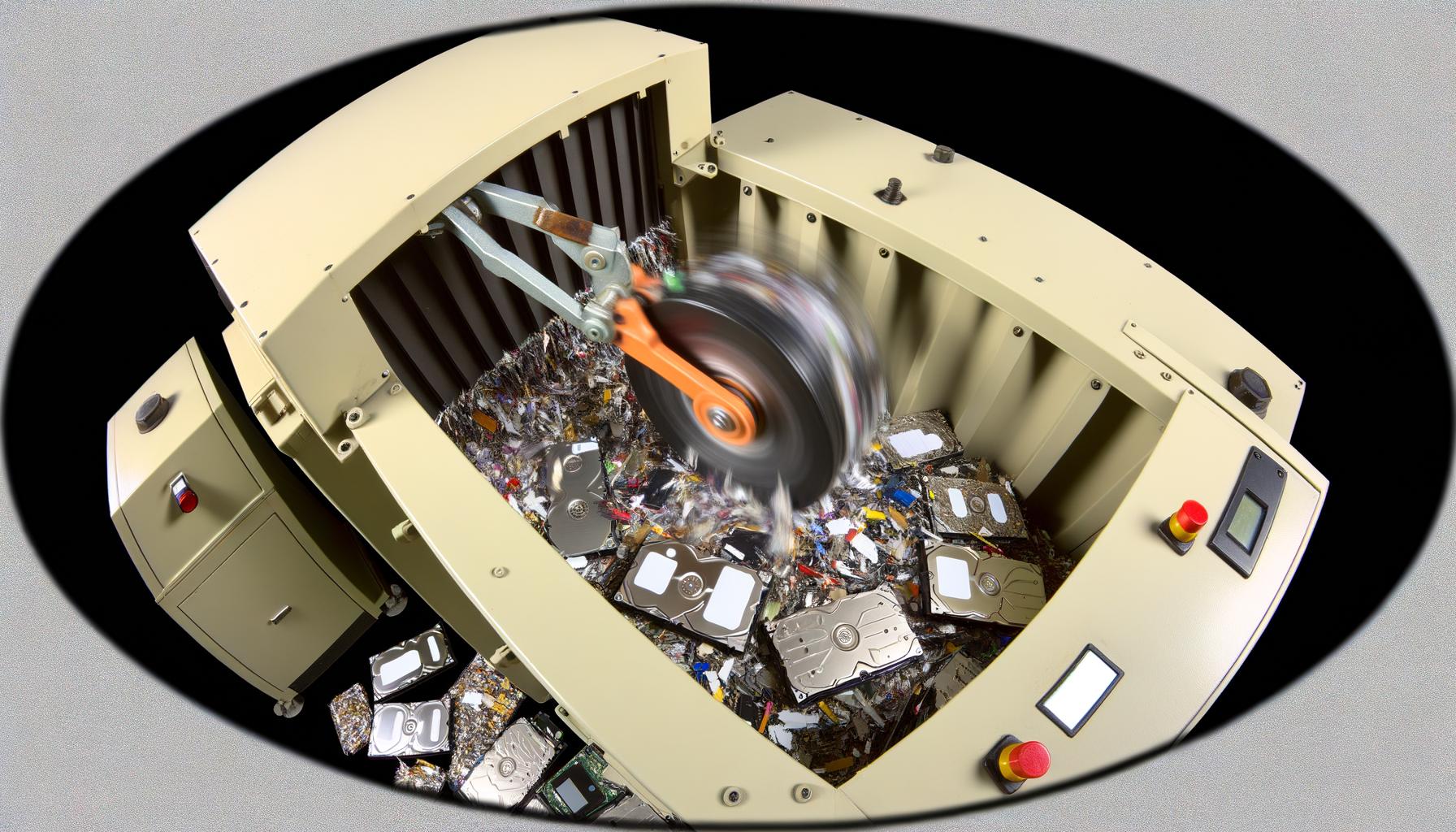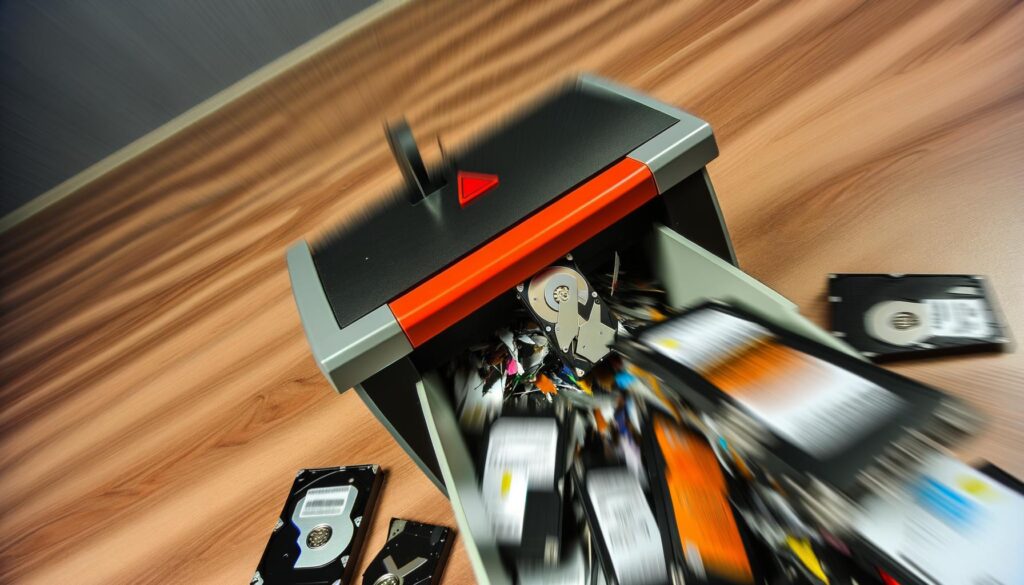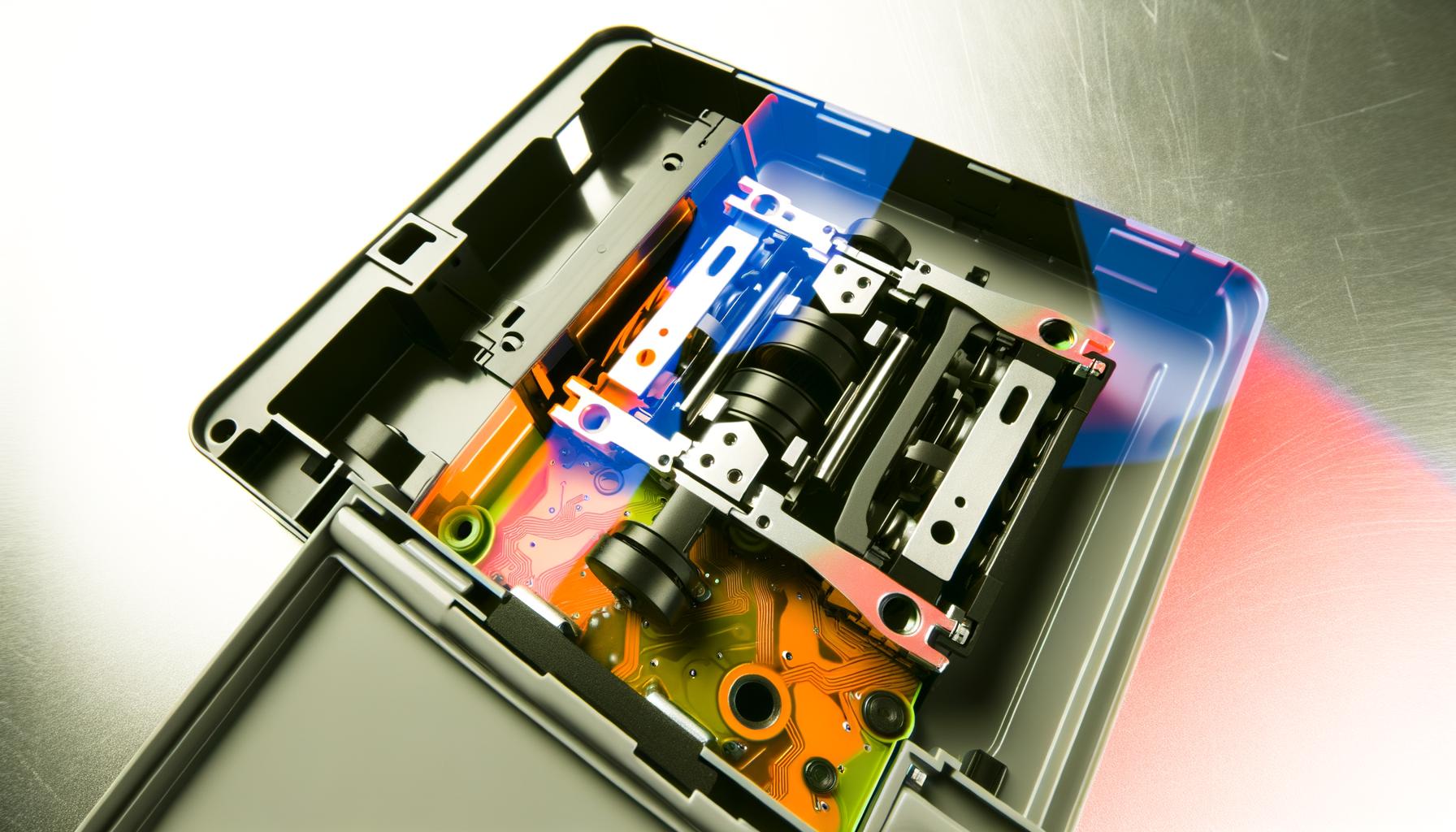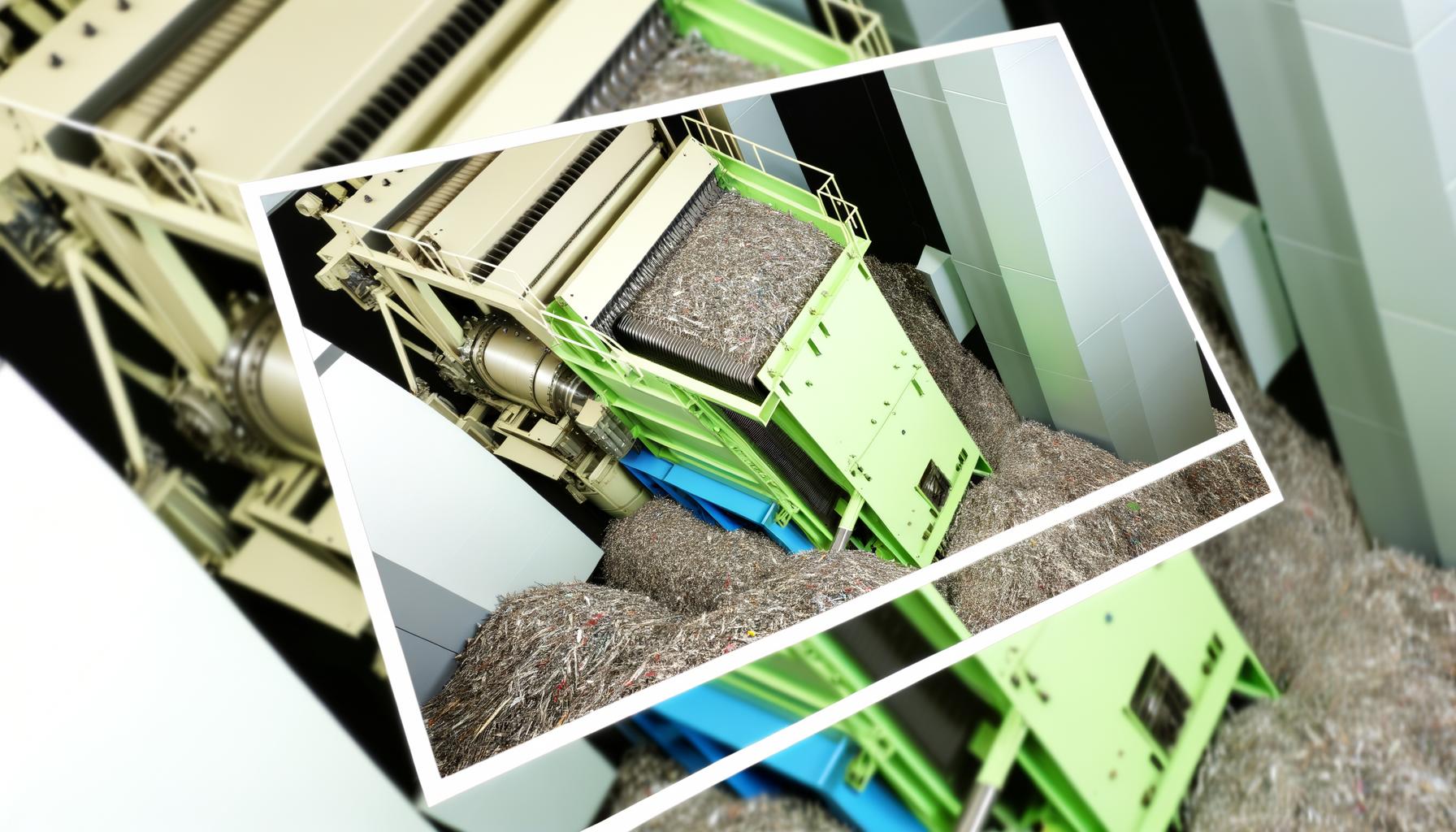In an age where information security is paramount, the concept of secure disposal has never been more critical. For residents of Garden Grove, ensuring that sensitive materials are disposed of securely is not merely a recommendation but a necessity to protect personal identity, maintain privacy, and preserve the environment. This blog post aims to shed light on why secure disposal should be at the forefront of every individual’s mind in Garden Grove.
Garden Grove residents face unique challenges when it comes to managing waste and safeguarding sensitive information. From confidential documents and electronic devices containing personal data to hazardous household waste, improper disposal can have severe ramifications. Whether you are a homeowner or a business owner in Garden Grove, understanding the importance of secure disposal can help prevent potential risks such as identity theft and environmental damage.
This article covers various aspects integral to comprehensive secure disposal practices. It discusses the types of materials needing secure methods for disposal, explores potential consequences of mishandling such materials, and presents practical solutions through local services and DIY techniques. By delving into these crucial points, we aim to equip Garden Grove residents with the knowledge needed to make informed decisions about their waste management practices, ultimately fostering a safer and greener community.
The Risks of Insecure Disposal
In our increasingly data-driven world, the risks associated with insecure disposal have grown exponentially. Identity theft stands at the forefront of these concerns, as improperly discarded documents often contain sensitive personal information such as social security numbers, bank account details, and medical records.
For Garden Grove residents, a single slip-up in secure disposal can lead to a cascade of severe repercussions, including financial loss and long-term credit damage. Statistics reveal that identity theft impacted approximately 33% of US citizens in 2021 alone, spotlighting the critical need for rigorous secure disposal practices.
Types of Materials Requiring Secure Disposal
A variety of materials require special attention when it comes to secure disposal. These include paper documents containing confidential data, electronic devices like computers and smartphones that store vast amounts of personal and corporate information, and even everyday items such as prescription bottles with identifiable labels. Garden Grove households and businesses must also consider specialized waste like legal documents, tax papers, corporate contracts, and customer data files that could all pose serious security threats if disposed of improperly.
Potential Consequences of Improper Disposal
The negative consequences extend beyond personal identity theft to broader societal issues such as environmental hazards. Many electronics contain harmful chemicals like lead and mercury; if these are not disposed of properly through secure methods like certified e-waste recycling programs, they can leach into the soil and groundwater.
Moreover, some legal ramifications come into play for businesses failing to meet state or federal guidelines for secure document destruction. Companies could face hefty fines or lawsuits from clients whose information was compromised due to insecure disposal practices.
Real-life examples highlight how dire these risks can be. In one notable incident in Southern California, a healthcare provider faced a multimillion-dollar lawsuit after patient records were found in unsecured trash bins behind their facility. Another case involved a major retailer whose improper disposal methods led to thousands of customers’ credit card information being stolen and misused. Such instances underscore the importance for residents and business owners in Garden Grove to implement thorough secure disposal protocols actively.
By understanding what constitutes proper secure disposal and recognizing the severe implications of neglecting it, we can all contribute towards minimizing both individual risks and community-wide hazards.
Understanding Secure Disposal
Secure disposal refers to the process of properly and safely destroying sensitive materials to prevent unauthorized access or environmental harm. It is crucial for both individuals and businesses to understand the specifics of secure disposal to protect their personal information, maintain regulatory compliance, and minimize ecological impact. Ensuring that your materials are disposed of securely acts as a defense against various threats such as identity theft and data breaches.
Definition and Essentials of Secure Disposal
At its core, secure disposal involves specific actions designed to irretrievably destroy or render unusable any material containing sensitive information. This can include paper documents, electronic data storage devices like hard drives, and even certain types of medical waste. The essentials of secure disposal consist of identifying which items require special handling, choosing the appropriate method for destruction, and ensuring that all relevant laws and guidelines are followed meticulously.
Different Methods of Secure Disposal
Several methods can be employed for the secure disposal of sensitive materials. Shredding is one of the most common techniques used for paper documents; it slices paper into small pieces that make it nearly impossible to reassemble anything coherent. For electronic media such as hard drives or USB sticks, incineration or degaussing might be necessary; these methods effectively destroy data beyond recovery.
Other specialized practices like chemical treatment can be used for disposing hazardous materials in an environmentally friendly way. Each method aligns with specific types of waste and necessitates different levels of security measures.
Legal Requirements and Regulations in Garden Grove
In Garden Grove, proper secure disposal isn’t just a best practice-it’s a legal mandate governed by state and federal regulations. Laws such as HIPAA (Health Insurance Portability and Accountability Act) dictate stringent requirements on how healthcare providers must handle patient information during disposal processes.

Businesses may also need to comply with standards set forth by legal frameworks like FACTA (Fair Accuracy Credit Transactions Act), which mandates the proper destruction of consumer reports and other sensitive data. Failing to adhere to these rules can result in severe penalties including hefty fines and legal action.
Garden Grove residents should not overlook the importance of complying with these regulations when considering how to perform secure disposal efficiently. Reliable solutions exist within local communities to aid both businesses and individuals in meeting their obligations while maintaining high standards for safety and environmental stewardship in their disposal practices.
Choosing a Secure Disposal Service
When choosing a secure disposal service, it is essential to identify key features that ensure the safety and integrity of your sensitive materials. One important characteristic to look for is certification from recognized standards organizations, such as the National Association for Information Destruction (NAID).
Certified providers adhere to strict protocols that guarantee secure handling and destruction processes. Additionally, you should verify if the company offers a chain of custody documentation, which tracks your materials from collection to destruction, giving you peace of mind that your items are being handled correctly.
Another factor to consider is the range of services offered. Some companies may specialize in document shredding but lack capabilities for e-waste recycling or data destruction on hard drives.
Comprehensive providers will offer an array of services including shredding, incineration, degaussing for electronic media, and even mobile shredding units that come to your location for onsite disposal. It’s also beneficial to compare local disposal companies in Garden Grove by reading customer reviews and testimonials, which can provide insights into their reliability, professionalism, and efficiency.
As you engage potential secure disposal service providers, prepare a list of questions that address your specific needs. Inquire about their methods for ensuring secure disposal and whether they comply with relevant legal requirements. Ask about their turnaround time and how they handle large volumes if applicable. Moreover, find out if they have eco-friendly practices in place; some companies integrate green solutions like recycling shredded paper or safely disposing of hazardous electronic components.
| Key Feature | Description |
|---|---|
| Certification | Look for NAID certification and adherence to protocols. |
| Services Offered | Ensure a range of services such as shredding and e-waste recycling. |
| Customer Reviews | Read testimonials for insights into reliability and efficiency. |
| Eco-Friendly Practices | Check if they integrate green solutions like recycling. |
By focusing on these criteria during your evaluation process, you can select a service provider that will meet both your practical needs and regulatory obligations while ensuring the secure disposal of sensitive materials.
Corporate and Residential Secure Disposal Needs
Corporations and residences in Garden Grove face differing secure disposal needs due to the scale and nature of the materials they handle. Businesses often deal with large quantities of sensitive information, ranging from financial records to employee personal data. These can be prime targets for identity theft if improperly disposed of.
For instance, in 2020 alone, there were over 1,000 data breaches reported compromising more than 150 million records. Therefore, companies must implement robust secure disposal practices such as regular document shredding and electronic data destruction to mitigate these risks.
For businesses, specific secure disposal solutions are available that cater to their extensive requirements. Professional services offer on-site or off-site shredding options, where documents are destroyed beyond recognition either directly at the company’s premises or at a secure facility.
Electronic waste poses another significant concern; thus, corporate entities should employ services specializing in IT asset disposition (ITAD) which includes secure disposal methods like degaussing hard drives or physical destruction to ensure that sensitive digital information cannot be recovered.
Homeowners also need practical yet effective ways to ensure their personal information remains private. While the volume of materials requiring secure disposal might be less than that of a corporation, residential settings still handle enough sensitive documents-like bank statements and tax records-to warrant attention.
Residents can utilize small household shredders for paper documents while responsibly recycling other non-sensitive waste products. For electronic devices such as laptops or smartphones containing personal data, residents should consider using software tools for wiping data or seek community electronic recycling events specifically designed for secure disposal.
| Corporate Disposal Needs | Residential Disposal Needs |
|---|---|
| Document Shredding | Household Paper Shredders |
| IT Asset Disposition (ITAD) | Electronic Recycling Events |
By differentiating between corporate and residential needs for secure disposal services in Garden Grove, both sectors can address their specific vulnerabilities effectively and efficiently.
Eco-Friendly Secure Disposal Practices
Ensuring that secure disposal practices are eco-friendly is increasingly important for Garden Grove residents. With rising awareness about environmental conservation, integrating secure disposal with green practices can help mitigate harmful impacts on the planet. Eco-friendly secure disposal methods ensure that personal, sensitive information is thoroughly destroyed while simultaneously protecting our natural environment.

One way to achieve eco-friendly secure disposal is by participating in Garden Grove’s recycling and disposal programs. For example, the city offers special events where residents can bring electronic waste, like old computers and televisions, for proper recycling and disposal.
These events not only provide a convenient way to get rid of such items securely but also guarantee that toxic components are disposed of safely to prevent environmental contamination. Moreover, many local shredding services partner with recycling firms to ensure that shredded paper does not end up in landfills but is instead repurposed into new products.
Residents can take additional steps at home to ensure eco-friendly secure disposal. For instance, using cross-cut shredders for paper documents ensures that information is irretrievable and makes the shredded material easier to recycle. Properly dismantling and sorting electronic components before recycling can enhance their reusability and further reduce environmental impact.
However, it’s worth noting that while DIY methods are effective for smaller volumes of personal information, professional services may offer a more robust solution for larger quantities or particularly sensitive data. By prioritizing both security and sustainability in their disposal practices, Garden Grove residents can protect themselves from risks like identity theft while contributing positively to the environment through responsible and secure disposal techniques.
DIY Secure Disposal Techniques
When it comes to secure disposal, many residents prefer the convenience and control of handling their documents and electronics themselves. There are several effective DIY methods for ensuring that sensitive information remains protected while also being efficiently disposed of. For personal documents like bank statements or medical records, investing in a high-quality shredder is a practical first step. Cross-cut or micro-cut shredders are particularly effective as they cut paper into small, nearly impossible-to-assemble pieces.
Additionally, when disposing of electronic devices such as smartphones, tablets, and computers, it is crucial to remove all personal data first. This can be done by performing a factory reset on the device; however, removing hard drives and physically destroying them can provide an added layer of security. For secure disposal of data storage devices like USB drives or CDs, specialized tools like disc shredders or degaussers (which demagnetize and erase data) can be used at home.
Here’s a handy list of tools you might need:
- High-quality cross-cut or micro-cut shredder for paper documents
- Factory reset options on electronic devices
- Screwdrivers and small hammers for removing and dismantling hard drives
- Disc shredders for CDs, DVDs, and Blu-Rays
- Degaussers for erasing magnetic media
It’s worth considering the pros and cons between DIY techniques versus professional services for secure disposal. While DIY methods offer the advantage of immediate control over how your materials are destroyed, they may not always meet legal compliance requirements if you run a business.
Additionally, using professional services often ensures that items are dispositioned in an environmentally friendly manner according to strict guidelines. Nevertheless, with the right tools and knowledge about secure disposal practices, residents can effectively handle much of their own needs safely at home.
The Future of Secure Disposal in Garden Grove
The field of secure disposal is poised for substantial evolution, driven by advancements in technology and increasing awareness about the repercussions of improper waste management. One of the key trends shaping the future is the integration of smart technology to streamline secure disposal processes. Innovations such as automated shredding machines connected to cloud systems can provide real-time tracking and documentation, ensuring compliance with legal requirements while offering businesses and homeowners a more transparent view of their disposal activities.
Eco-friendly methodologies are also gaining traction within the realm of secure disposal. For instance, new techniques that combine security with sustainability are being developed, including chemical recycling methods that break down electronic waste into reusable materials without compromising data security. Garden Grove itself can become a forerunner in this domain by adopting such technologies within its municipal services and endorsing local businesses that prioritize environmentally conscious practices.
Community involvement will play a critical role in shaping the future landscape of secure disposal in Garden Grove. Establishing educational programs focused on the importance of secure disposal and responsible recycling can significantly enhance public awareness. Community initiatives could include:
- Workshops on DIY secure disposal techniques
- Free or subsidized shredding events
- Partnerships with local schools to create curriculum modules on environmental stewardship
In essence, a multifaceted approach combining cutting-edge technology, eco-friendly practices, and grassroots community education is essential for fostering a robust culture of secure disposal in Garden Grove’s future endeavors.
Conclusion
Secure disposal of sensitive information and materials is not just an individual responsibility but a community-wide concern, especially in a place like Garden Grove. Through this article, we’ve navigated the complexities of why secure disposal matters, its potential risks, various methods available for both residential and corporate needs, eco-friendly practices, DIY techniques, future trends, and how to choose a reliable disposal service.
By becoming more informed and proactive about these concerns, residents can effectively mitigate the risks associated with insecure disposal.

It’s crucial for every resident to understand that improper handling of disposables can lead to severe consequences such as identity theft and environmental hazards. Awareness and education play pivotal roles in changing attitudes towards secure disposal practices. Local governments have laid down specific regulations that residents must adhere to; however, it is equally important for individuals to internalize these practices through everyday actions.
We urge all Garden Grove residents to utilize the resources provided within this guide. Whether opting for professional services or employing DIY techniques at home, the end goal should always be comprehensive and secure disposal. The local community has multiple access points-from reputable providers of secure disposal services to government contacts-ensuring that you have all the tools necessary for responsible waste management. Let’s make Garden Grove a model city for secure and environmentally conscious disposal practices.
Resources and Contacts
As we have navigated through the multifaceted landscape of secure disposal in Garden Grove, it becomes evident that both knowledge and action are vital to safeguarding our personal information and protecting our environment. From understanding the risks of insecure disposal to learning about eco-friendly practices and DIY techniques, each section has underscored the critical role that secure disposal plays in our daily lives.
By paying attention to these essential points, residents of Garden Grove can better equip themselves to handle their waste responsibly and securely.
The importance of comprehensive secure disposal cannot be overstated. With identity theft on the rise and environmental concerns becoming more pressing by the day, it’s crucial that individuals take a proactive approach towards managing their sensitive materials.
Whether you’re a business needing data destruction services or a homeowner looking for practical tips on document shredding, there are numerous resources available in Garden Grove designed to meet your specific needs. Taking advantage of these services not only protects you but also contributes to a safer, cleaner community.
We urge all residents of Garden Grove to prioritize secure disposal as an integral part of their routine. Assess your current practices, explore local disposal services, and educate yourself about emerging trends and technologies in this field.
By doing so, you take significant steps toward not only safeguarding your personal information but also ensuring that we leave a healthier planet for future generations. Let us collectively make conscious decisions around secure disposal; it is an investment in security, sustainability, and peace of mind for everyone involved.
Frequently Asked Questions
What Is Secure Disposal?
Secure disposal refers to the process of discarding sensitive or confidential materials in a manner that ensures they cannot be retrieved or misused by unauthorized individuals. This often involves shredding documents, securely wiping electronic devices, and following stringent protocols for hazardous materials. The goal is to protect privacy, prevent identity theft, and comply with legal requirements.
What Does Securely Dispose of It Mean?
To securely dispose of an item means ensuring that it is destroyed or rendered unusable so that its contents or components cannot be accessed by unauthorized persons. This includes methods like document shredding for paper, data wiping for digital files, and proper containment for hazardous waste. It guarantees that sensitive information remains confidential even after disposal.
What Is a Disposal of Security?
Disposal of security generally refers to the act of selling, transferring, or otherwise eliminating financial securities like stocks, bonds, or mutual funds from one’s investment portfolio. This might occur as part of regular trading activities or during rebalancing efforts to align with investment goals. The process involves careful consideration of market conditions and tax implications.
How Do You Securely Dispose of Documents?
Securely disposing of documents involves using methods such as cross-cut shredding or incineration to ensure paper records are irrecoverably destroyed. Electronic documents should undergo data wiping procedures where all traces are thoroughly erased from hard drives and other storage media using specialized software tools. Compliance with regulatory guidelines is also critical in this context.
What Is the Disposal Rule?
The Disposal Rule pertains to regulations mandating specific procedures for the destruction of consumer information derived from credit reports to safeguard against unauthorized access or misuse. Under this rule, businesses must implement measures ensuring the secure destruction of these records—such as burning, pulverizing, or shredding physical documents and electronically deleting digital files.
What Is the Difference Between Secure Landfill and Sanitary Landfill?
A secure landfill is a highly controlled facility designed to manage hazardous waste by containing contaminants and preventing them from leaching into the environment through extensive lining systems and monitoring plans. In contrast, a sanitary landfill deals with non-hazardous municipal solid waste through engineered protective measures but typically without the extensive controls demanded by secure landfills.
What Does Disposal Mean in Account?
In accounting terms, disposal denotes removing an asset from an entity’s financial records following its sale or retirement from use within operations. This involves ceasing depreciation charges on the asset and recognizing any resultant gains or losses based on the difference between its sales proceeds (if sold) and its book value.
What Is the Meaning of Safe Disposal?
Safe disposal implies handling discarded items in ways that protect human health and environmental integrity while adhering to governance standards concerning various waste categories—including household hazardous waste like batteries and electronic goods—to mitigate risks associated with improper disposal practices such as pollution control violations or public safety hazards.




